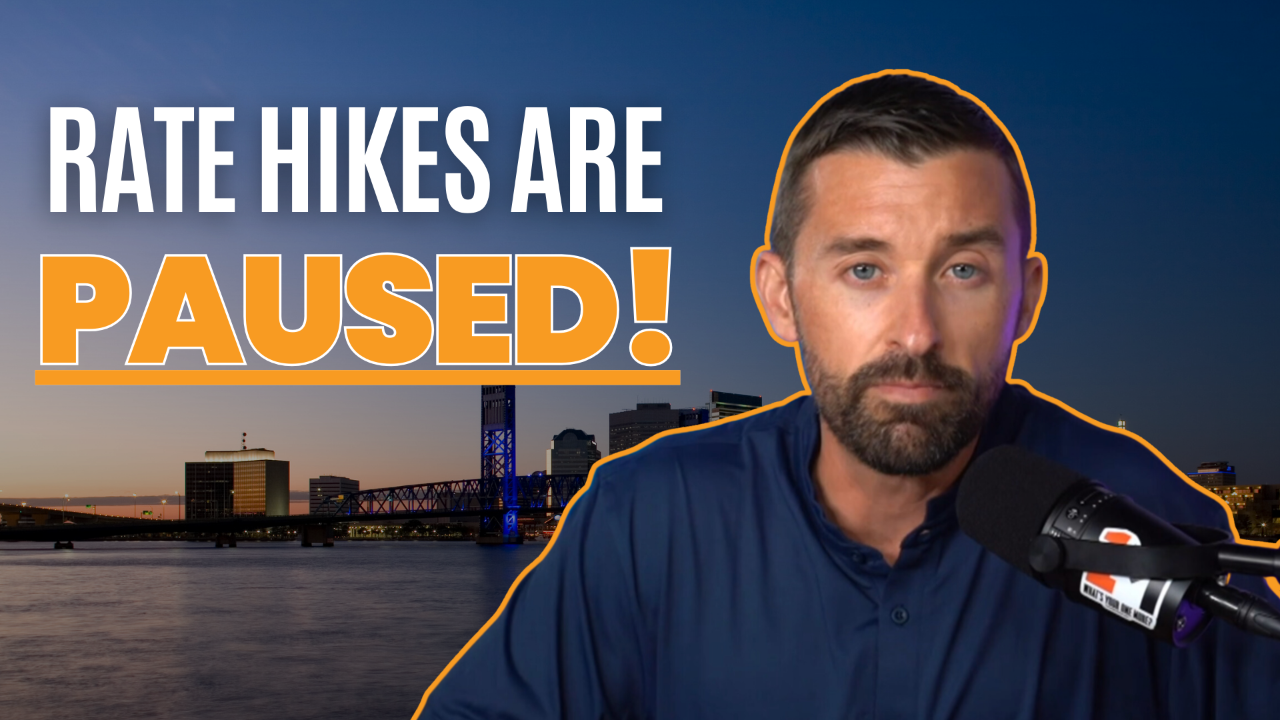Ep. 108 - The Jerome Powell Show | Rate Hikes Are PAUSED | #001
Nov 08, 2023
The Federal Reserve’s recent decision to pause its interest rate hikes has been cheered by investors, but also raises questions about the state of the economy. Markets rallied after Fed Chairman Jerome Powell signaled rates may not climb much further. However, parsing policymaker remarks and economic data releases suggests risks still lurk beneath the surface.
The Fed's Pivot
After a string of aggressive rate hikes, the Fed opted to hold steady at their November meeting. Powell cited signs of slowing economic momentum, particularly a softening job market. The days of 75 basis point bumps are likely over, with smaller increases possible going forward. Powell maintains the Fed has not overtightened, but did not rule out rate cuts if conditions deteriorate.
This pause comes despite inflation remaining well above the Fed’s 2% target. Powell seems unfazed by ballooning consumer debt, declining savings and manufacturing job losses that would typically raise alarm bells. While markets are euphoric over lower rates ahead, some argue the Fed is being influenced by political pressure to pump the brakes ahead of 2024. Amid mixed signals, investors are left reading the tea leaves.
Squaring Data Points
Recent jobs data underpins the Fed’s decision to shift to a more dovish stance. The latest jobs report saw an uptick in unemployment alongside slower than expected hiring. However, most gains came from lower-paying government sectors. Higher income manufacturing roles shed 35,000 jobs. This is problematic since inflation is driven by insufficient supply and production capacity.
Meanwhile, household balance sheets show rising vulnerabilities. Savings rates have plunged to 2008 lows, while revolving debt just topped $1 trillion for the first time ever. Credit card delinquencies are on the rise as well. This casts doubt on consumer resilience if the economy continues to weaken.
Storm Clouds Gathering
Powell asserts U.S. banks are well-insulated from market shocks, but trouble may be brewing under the radar. JPMorgan CEO Jamie Dimon made waves recently with two ominous moves. First he warned a “hurricane” was ahead for the U.S. economy. Days later, he cashed out $153 million in personal stock at 52-week lows.
Dimon’s actions suggest he sees risks the Fed may be ignoring. His bank also controls the largest share of consumer credit markets, granting unique insights into household stress. Surging interest costs on trillions in U.S. debt also cannot be disregarded. With wavering leadership and mixed indicators, it’s unclear whether the Fed’s reprieve will last.
Bottom Line
For now, the Fed appears ready to step back and see how their epic rate hikes impact the economy. Markets are euphoric at the prospect of a less hawkish Fed. However, celebrations may be premature given undercurrents of weakness in household finances and jobs. While inflation could continue to ease, the forces that drove price spikes remain largely unresolved. Unless supply chain hurdles, labor shortages and runaway spending are tackled, rising rates could return sooner than investors hope. With questionable data and muddled messaging, the Fed’s next moves remain uncertain.


